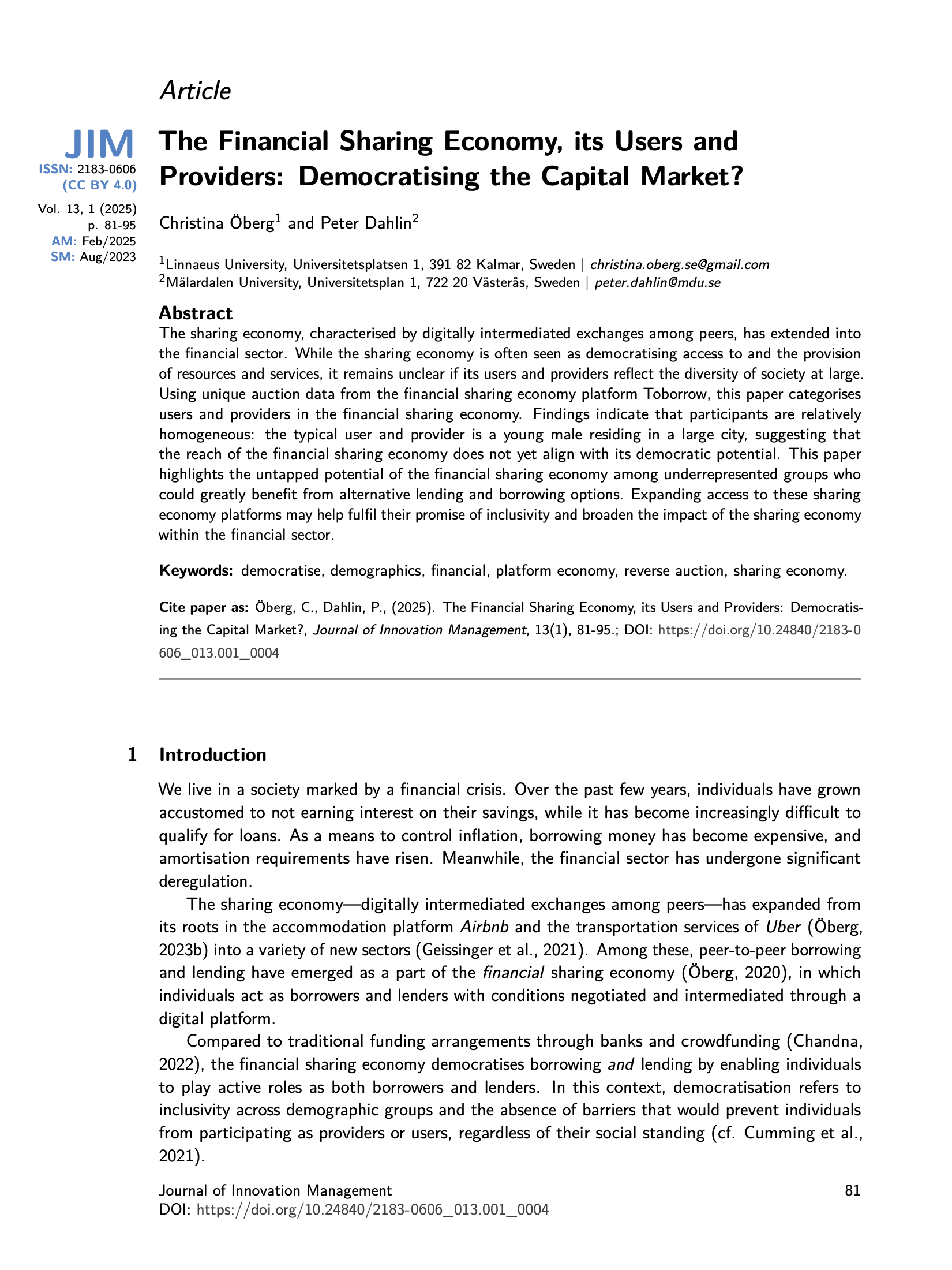The Financial Sharing Economy, its Users and Providers: Democratising the Capital Market?
Main Article Content
Abstract
The sharing economy, characterised by digitally intermediated exchanges among peers, has extended into the financial sector. While the sharing economy is often seen as democratising access to and the provision of resources and services, it remains unclear if its users and providers reflect the diversity of society at large. Using unique auction data from the financial sharing economy platform Toborrow, this paper categorises users and providers in the financial sharing economy. Findings indicate that participants are relatively homogeneous: the typical user and provider is a young male residing in a large city, suggesting that the reach of the financial sharing economy does not yet align with its democratic potential. This paper highlights the untapped potential of the financial sharing economy among underrepresented groups who could greatly benefit from alternative lending and borrowing options. Expanding access to these sharing economy platforms may help fulfil their promise of inclusivity and broaden the impact of the sharing economy within the financial sector.
Article Details
Authors who publish with this journal agree to the following terms:
- Authors retain copyright and grant the journal right of first publication with the work simultaneously licensed under a Creative Commons Attribution License that allows others to share the work with an acknowledgement of the work's authorship and initial publication in this journal.
- Authors are able to enter into separate, additional contractual arrangements for the non-exclusive distribution of the journal's published version of the work (e.g., post it to an institutional repository or publish it in a book), with an acknowledgement of its initial publication in this journal.
- Authors are permitted and encouraged to post their work online (e.g., in institutional repositories or on their website) prior to and during the submission process, as it can lead to productive exchanges, as well as earlier and greater citation of published work (See The Effect of Open Access).

